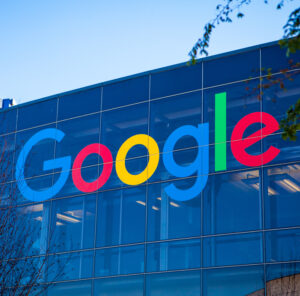Big Tech’s ad revenue slump doesn’t seem to be coming to an end anytime soon.
Meta reported $27.2 billion in ad revenue in its Q3 earnings report on Wednesday. That represents a 4% drop year-over-year (YoY).
Net income for Q3 was $4.4 billion, down 52% YoY.
And Meta is projecting another revenue dip for Q4. The company expects revenues between $30 and $32.5 billion, down from $33 billion in Q4 2021.
As a result, Meta will implement layoffs and hiring freezes throughout 2023.
“We expect to end 2023 as either roughly the same size or even a slightly smaller organization than we are today,” said Meta CEO Mark Zuckerberg.
And, over the next year, the company will focus investments on three primary areas: its AI discovery engine (think TikTok-style content recommendation), ads and business messaging and, of course, the metaverse.
Engagement and ad revenue
Despite less-than-stellar ad revenue numbers, Meta is seeing user engagement grow across its platforms.
In Q3, Facebook’s global audience grew to 2 billion daily active users (DAUs), its highest mark yet. Over the same period, WhatsApp drew more than 2 billion DAUs, and Instagram attracted more than 2 billion monthly active users.
Although Meta is serving more impressions than ever, average revenues are down. Number of ads served is up 17% YoY, but the average price per ad dropped 18%.
And there’s been a noticeable slide in average revenue since Apple’s AppTrackingTransparency (ATT) went into effect in Q3 2021.
Across Meta’s family of platforms, average revenue per person dropped to $7.53 in Q3 2022 from $8.18 in Q3 2021. On Facebook, average revenue per user dropped to $9.41 compared to $10.00 last year.
The decline in average ad price was due to “strong impression growth, especially from lower monetizing surfaces and regions [like Asia Pacific], foreign currency depreciation and lower advertiser demand,” said Meta CFO David Wehner.
While ATT is often cited as the source of Meta’s ad revenue struggles, Wehner pointed to recession fears as the main culprit.
“The headwind to year-over-year growth from Apple’s ATT changes diminished in Q3 as we lapped the first full quarter post the launch of iOS 14.5,” Wehner said. “However, this was offset by weak advertising demand […] impacted by the uncertain and volatile macroeconomic landscape.”
Metaverse and other investments
Meta is optimistic that it will see healthier revenue growth next year, but advertising signal loss and a possible recession are forcing the company to reexamine its expenses.
“It’s not clear that the economy has stabilized yet, so we’re planning our budgets somewhat more conservatively,” Zuckerberg said.
The bulk of Meta’s investments are still going toward its family of apps. Meta spent $18.1 billion, or 82% of its overall expenses, on app development.
Total expenses for Q3 were $22.1 billion, up 19% YoY. The increase was largely attributed to hardware investments in Quest VR headsets and software investments in AI, AR/VR and the metaverse.
To reduce expenses amid flagging revenue numbers, Meta will be reevaluating employee and real estate costs over the coming year, Wehner said.
But the company is still placing its long-term bets on the metaverse.
“I get that a lot of people might disagree with this investment,” Zuckerberg said. “But people are going to look back decades from now and talk about the importance of the work that was done here.”
However, Meta’s first foray into building a social metaverse platform, Horizon Worlds, “obviously has a long way to go before it’s going to be what we aspire for it to be,” Zuckerberg said.
In addition to the metaverse, Meta will continue to prioritize investing in its AI discovery engine, which will surface more types of content to its users, paid messaging through Messenger, WhatsApp and Instagram Direct, and advertising, Zuckerberg said. “Some teams will grow meaningfully, but most other teams will stay flat or shrink over the next year,” he said.
Meta sees paid messaging as one way to defray ATT’s $10 billion dollar blow to its business model by integrating commerce internally and building out its attribution offering, Zuckerberg said.
Paid messaging is currently a $9 billion business for Meta. The company is bullish on a partnership that allows Salesforce businesses to use WhatsApp for customer service inquiries and chat-based sales, as well as its WhatsApp-based shopping platform, JioMart, which launched in India in August.
On the AI front, Meta’s increase in AI capacity is substantially driving all of its capital expenditure growth for 2023, according to Wehner.
AI isn’t just being used for content discovery but as a way to rebuild the damage done to Meta’s targeting, measurement and attribution capabilities in the wake of Apple’s ATT, said Meta VP of Finance Susan Li. For example, its Advantage+ Shopping ecommerce solution automates testing and targeting of creative variations in an environment with fewer signals.
And over the longer term, Meta will invest in its own portfolio of privacy-enhancing technologies, as well as supporting industry efforts in that space, Li said.


















